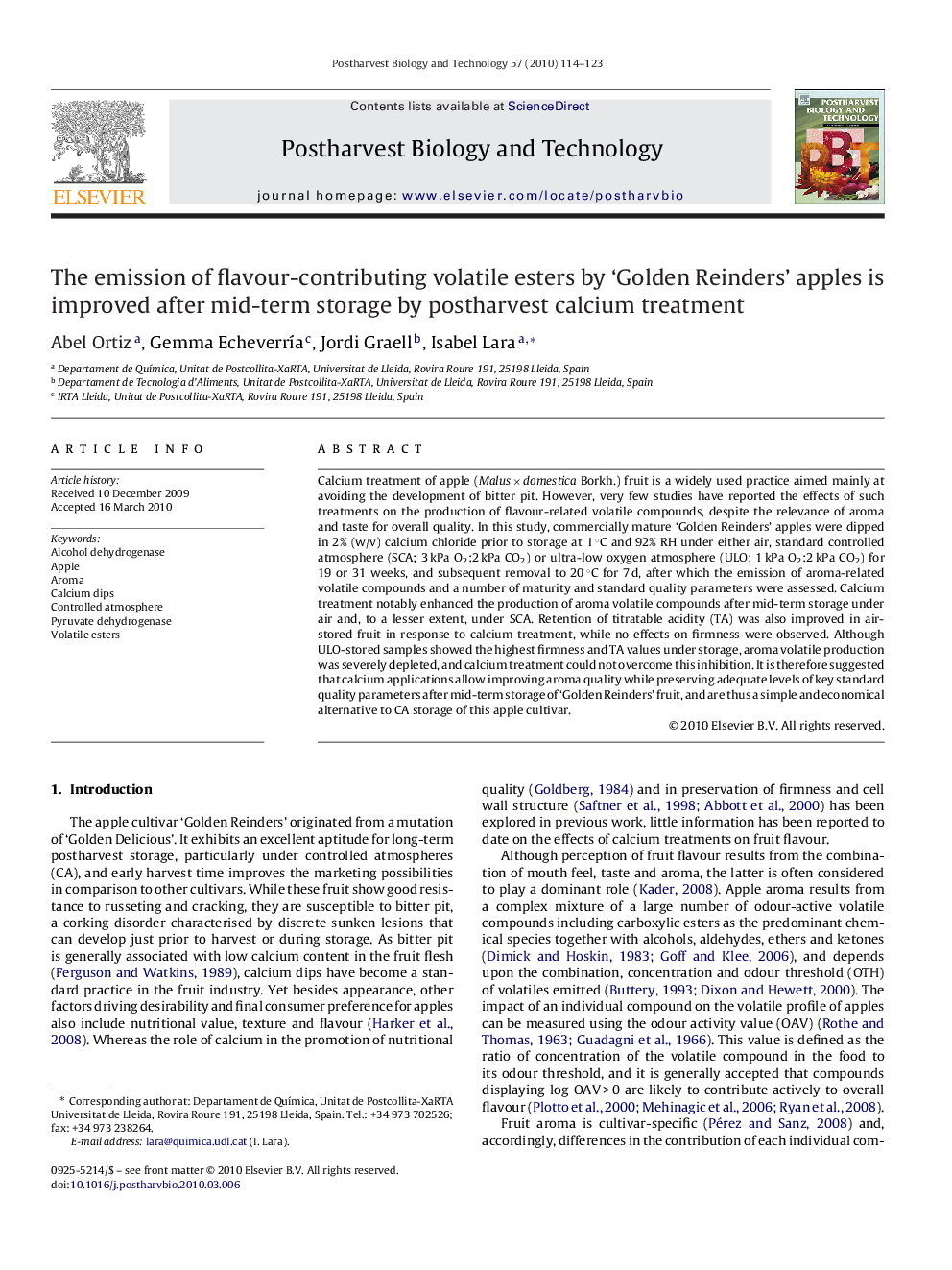| Article ID | Journal | Published Year | Pages | File Type |
|---|---|---|---|---|
| 4518965 | Postharvest Biology and Technology | 2010 | 10 Pages |
Calcium treatment of apple (Malus × domestica Borkh.) fruit is a widely used practice aimed mainly at avoiding the development of bitter pit. However, very few studies have reported the effects of such treatments on the production of flavour-related volatile compounds, despite the relevance of aroma and taste for overall quality. In this study, commercially mature ‘Golden Reinders’ apples were dipped in 2% (w/v) calcium chloride prior to storage at 1 °C and 92% RH under either air, standard controlled atmosphere (SCA; 3 kPa O2:2 kPa CO2) or ultra-low oxygen atmosphere (ULO; 1 kPa O2:2 kPa CO2) for 19 or 31 weeks, and subsequent removal to 20 °C for 7 d, after which the emission of aroma-related volatile compounds and a number of maturity and standard quality parameters were assessed. Calcium treatment notably enhanced the production of aroma volatile compounds after mid-term storage under air and, to a lesser extent, under SCA. Retention of titratable acidity (TA) was also improved in air-stored fruit in response to calcium treatment, while no effects on firmness were observed. Although ULO-stored samples showed the highest firmness and TA values under storage, aroma volatile production was severely depleted, and calcium treatment could not overcome this inhibition. It is therefore suggested that calcium applications allow improving aroma quality while preserving adequate levels of key standard quality parameters after mid-term storage of ‘Golden Reinders’ fruit, and are thus a simple and economical alternative to CA storage of this apple cultivar.
